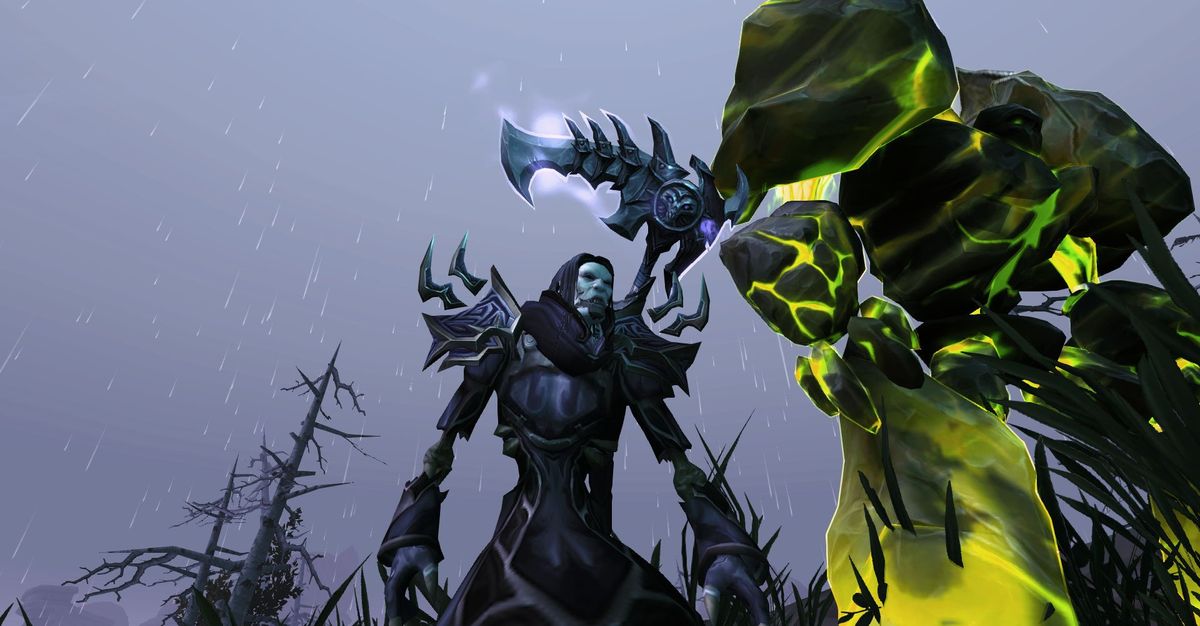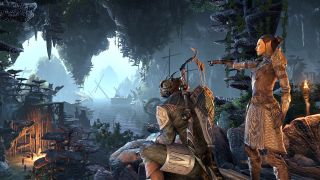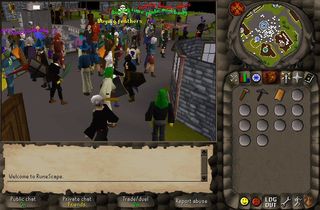How massively multiplayer online role-playing games (MMORPGs) became a stagnant genre
MMORPGs are less popular so is it time to modernize the genre?


Bless Online is but one of the latest massively multiplayer online role-playing games (MMORPG) to launch and be poorly received by the community. It represents the genre as a whole, which has failed to modernize itself and entice players to return to the classic system of exploring massive worlds, completing daily quests, and rolling around with guilds of other gamers.
But how did this colossal beast of a genre become stagnant?
World of wonders
The game everyone immediately points to when the term MMORPG is thrown into the mix is World of Warcraft. It's the title that has been around for over a decade, has endured numerous updates, DLC launches, and competitor games.
Blizzard has done a stellar job at keeping a community alive after so many years, while other companies seemingly fail at the start line.
An issue with World of Warcraft, which itself has seen declines in players, is being part of a traditional, old-school system. Games like Runescape, Ultima Online, EverQuest, EVE Online, among others is the fundamental mechanics don't alter through updates. Sure, graphical improvements are made and new systems can be added in later releases, but how the game feels and plays is usually unchanged.
An MMORPG can launch and survive or fail and be forgotten.
This leaves it to hardcore fans of each game to continue logging in. Newcomers will arrive as they find out about MMORPGs for the first time, but as the gaming industry has evolved since the early 2000s, it's no longer the only genre that offers addictive multiplayer gameplay. Take a look at PlayerUnknown's Battlegrounds and League of Legends as two fine examples of multiplayer games that swap out the massive world for competitive, addictive gameplay.
MMORPG launches are generally met with varying degrees of success (Guild Wars 2, Final Fantasy 14: Realm Reborn) or failure (AEON, Warhammer Online). Does anyone remember WildStar? Said titles attempted to take the World of Warcraft formula and adapt it slightly to make it seem fresh without being too unfamiliar. Guild Wars 2 is usually brought up as a fine example as to how to take the MMORPG as everyone knows it and make some meaningful changes.
Get the Windows Central Newsletter
All the latest news, reviews, and guides for Windows and Xbox diehards.
Still, have we lost the Massive from MMO and simply prefer Multiplayer Online games?
Modernizing the MMORPG

Big games aren't unique to the MMO genre anymore. The Witcher 3, Skyrim, and even Zelda: Breath of the Wild all have massive worlds ready for exploration. It's no longer a selling point for new and old MMORPGs. No longer do you have to subscribe to a single title to enjoy a sense of scale and realism in just how long it can take you to walk from one side of the world to the other.
Playing with friends was another big bonus of these massive online games. You felt like you were part of the world, and so was everyone else. You'd trade with other players, set up shop, take down beasts, and more. You weren't simply reading text on a screen from an NPC with zero personality. But no longer is that the case in single-player games. Again, The Witcher 3. Fully voiced actors with incredibly realistic graphics and animations make the world appear to be alive.
Features that made MMOs unique are no longer rare drops.
Most games also receive some kind of post-launch support too, usually in the shape of DLCs and free content. Traditionally, it was the big MMO budgets that allowed for some creativity without needing to charge a full $60 a second time around. The same goes for most genres now. Take Cities: Skylines, which has a number of DLCs available, and more are likely to be on the way, for a game that came out in 2015.
It's difficult to see where the MMO genre fits into how gaming has evolved to this very day. Is an active player count of a million people really that uncommon and restricted to online games with big worlds? Not anymore. Path of Exile runs on sessions, which are created as you enter a map. You can run with friends, random people you meet or go it alone. Sea of Thieves allows you to meet, greet, and defeat others too. One could argue that the very idea of an "MMO" has been diluted.
Not quite an endgame

I don't believe the MMORPG (and MMO genre as a whole) as we know it will die out anytime soon. There are plenty of games still doing well and pulling in the numbers. So long as there remains a demand, the supply will be kept open. Will the massive online games have to adapt and change to how gamers want to enjoy games? Absolutely, and it's something developers will need to get right in order to better compete with other genres for time.
Combat is something developers have attempted to get right. I'm sure you've seen the countless memes about the typical MMO UI with a massive array of skills and abilities to choose from. Certain titles have tried to distance themselves from this approach, by focusing more on a select few skills per class and combat movement, which makes it more engaging in battles where enemies have telegraphed attacks. Blizzard's upcoming World of Warcraft expansion, Battle for Azeroth, includes advanced enemy A.I. in some cases that attempt to mimic less predictable player behavior, rather than the cannon fodder monsters the game is typically known for in its leveling experience.
Developers will need to check again to see how gamers are playing popular titles today, both single-player and online-only to see what they can come away with the reinvigorate the classic and well-loved genre.
I'm intrigued to learn your past (and present) experiences with MMO games and how they fit into your current available gaming schedule, so hit the comments!

Rich Edmonds was formerly a Senior Editor of PC hardware at Windows Central, covering everything related to PC components and NAS. He's been involved in technology for more than a decade and knows a thing or two about the magic inside a PC chassis. You can follow him on Twitter at @RichEdmonds.